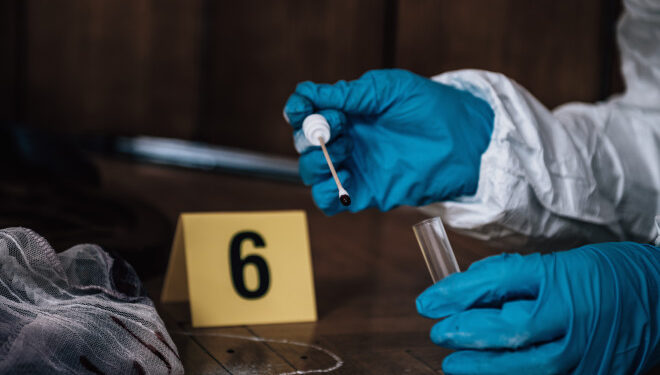A Lecturer in the Department of Forensic Sciences at the School of Biological Sciences, College of Agriculture and Natural Sciences, University of Cape Coast, Dorcas Odarley Ablateye has highlighted the essential role of forensic science in addressing crimes and legal matters.
She explained that forensic science is a multifaceted and interdisciplinary field that employs a variety of scientific methods to investigate and solve criminal cases.
The discipline involves the meticulous collection, preservation, and analysis of physical evidence from crime scenes to aid in both criminal investigations and legal proceedings.
For instance, she noted that blood found at crime scenes is classified as biological evidence, while specialized equipment is used to detect fingerprints on objects at the scene.
Ms. Ablateye further elaborated on the detailed processes involved in crime scene investigations, emphasizing that forensic science is instrumental in reducing criminal activity by aiding in the identification and apprehension of offenders.
She stressed the importance of proper crime scene management, advising, “Avoid touching anything at a crime scene, as it can interfere with investigations.”
Additionally, Ms. Ablateye underscored the need for diligence in forensic work, emphasizing that accurate investigations are vital for providing closure to victims’ families.
She added, “As a forensic scientist, you have to be diligent because families of victims seek closure and rely on the integrity of your work. There is also the risk of attempts to bribe forensic scientists to tamper with results, which is why maintaining strict diligence is crucial.”
Read Also: UCC Counselor Highlights Anxiety Disorder, Urges Seeking Help
Source: Comfort Sweety Hayford/ATLFMNEWS



























